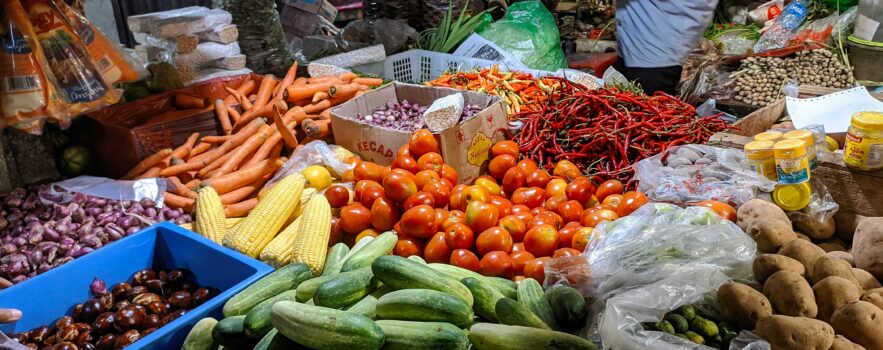The 2025 EAT-Lancet Commission has published its Report on Healthy, Sustainable, and Just Food Systems, presenting the most comprehensive global scientific evaluation of food systems to date.
Key findings of the report include:
- Shifting global diets could prevent up to 15 million premature deaths per year.
- Food systems are the largest contributor to the transgression of five planetary boundaries, including land system change, biosphere integrity, freshwater change, biogeochemical flows, and climate change.
- Food systems currently account for roughly 30% of total greenhouse gas emissions globally. Transforming food systems could cut these emissions by more than half.
- Fewer than 1% of the world’s population is currently in the ‘safe and just space’, where people’s rights and food needs are met within planetary boundaries.
- The wealthiest 30% of people drive more than 70% of food-related environmental impacts.
Building on its influential 2019 report, the new Commission – comprising leading international experts in nutrition, climate, economics, health, social sciences and agriculture from more than 35 countries across six continents – finds that shifting global diets could prevent approximately 15 million premature deaths per year. At the same time, concerted global efforts to transform food systems could bring us back within planetary boundaries and cut annual greenhouse gas emissions from food systems by more than half compared with a business-as-usual scenario.
The analysis warns that even with a complete global transition away from fossil fuels, food systems could still push temperatures beyond 1.5°C. The planetary boundaries framework defines nine key Earth system processes that regulate life on Earth. The world has already passed six of these nine boundaries: climate, biodiversity, land, freshwater, nitrogen and phosphorus pollution, and novel entities (pesticides, antimicrobials, and microplastics). Food systems are the largest contributor to five of these transgressions and contribute around 30% of greenhouse gas emissions globally.
Professor Nita Forouhi of the MRC Epidemiology Unit was a Commissioner for the EAT-Lancet Report, and commented:
It was a privilege to serve as a topic expert for the section of the report addressing the relationship between nutrition and human health, working together with colleagues around the world to reach a compelling evidence-based conclusion for the promotion of a planetary health diet.
As a Commissioner for this EAT-Lancet report I had the opportunity to work in a truly cross-disciplinary way with colleagues across diverse areas of expertise, breaking out of our silos to work together to understand the critical connections between food, health and the environment.
What we eat and how food is produced has a profound impact not only on health, but also on planetary sustainability, and the EAT-Lancet report finds that food systems make the single largest contribution to the transgression of five key planetary boundaries. The report gives hope that through a transformation of our food system, we can bring it back within the boundaries of what our planet can support, while at the same time improving human health – offering a win-win scenario.”
You can listen to Professor Forouhi discussing the findings of the report in more detail in a video accompanying the report.
Based on the report’s findings, the Commission outlines eight potential solutions aimed at advancing health, environmental, and justice goals:
- Protect and promote traditional healthy diets
- Create accessible and affordable food environments that increase demand for healthy diets
- Implement sustainable production practices that store carbon, create habitat, and improve water quality and availability
- Halt agricultural conversion of intact ecosystems
- Reduce food loss and waste
- Secure decent working conditions across the food system
- Ensure meaningful voice and representation for food systems workers
- Recognise and protect marginalised groups
Each solution is supported by a menu of concrete actions identified by the Commission as critical for transforming food systems, which also calls for subsidising reforms that make healthy and nutritious foods more accessible, and for regulatory and advocacy mechanisms that support decent work and meaningful representation for food systems workers. A just transformation requires building coalitions with actors both inside and outside of the food system, identifying priority actions, developing national and regional roadmaps, unlocking finance, and putting collaborative plans into action. These actions provide a guide for public, private, and civil society stakeholders to act together for meaningful progress.
More information
- Read the full report ‘The EAT–Lancet Commission on healthy, sustainable, and just food systems’ The Lancet (2025)
- Listen to Professor Forouhi discussing the findings of the 2025 EAT Lancet Commission
- Watch a recording of the launch of the 2025 EAT-Lancet Commission report on YouTube
Photo by Rezkytama Putra on Unsplash

 MRC Epidemiology Unit
MRC Epidemiology Unit